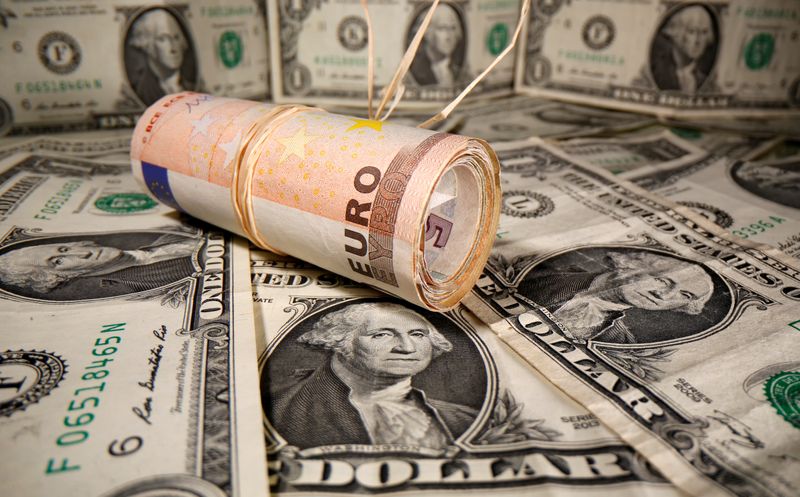By Hideyuki Sano
TOKYO (Reuters) - The euro hovered near four-month highs against the dollar on Monday, with investors holding out hope that European leaders will break a deadlock and hammer out an economic rescue deal in their marathon summit talks.
The euro changed hands at $1.1415 (EUR=), down 0.1% but still not far from a four-month high of $1.1452 touched on Wednesday.
EU leaders are at an impasse over a proposed 750 billion euro ($858.30 billion) recovery fund, which is supposed to be raised on behalf of them all on capital markets by the EU's executive European Commission.
That would be a historic step towards greater fiscal integration for the union, but a group of "frugal" wealthy north European states were pushing for a smaller fund and seeking to limit how payouts are split between grants and repayable loans.
A source said 350 billion euros on grants was the maximum acceptable for the camp of thrifty northerners, compared with 400 billion seen as the bare minimum by many others, including Germany and France.
"Given that they can narrow down their differences to just 50 billion (euros), markets are somewhat still hopeful of a compromise agreement, though the risk of the deal being called off totally remains," said Christopher Wong, FX analyst at Maybank in Singapore.
As European Council President Charles Michel urged leaders to achieve "mission impossible", diplomats said it was possible that they would abandon the summit and try again for an agreement next month.
"If they do come to an agreement, we should see a further rally in the euro," said Yujiro Goto, chief currency strategist at Nomura Securities.
But many market players also believe the euro will be supported even if the deal is not reached this time, as long as there remains the prospect of a deal on the stimulus.
"I don't know what to expect from the summit. But even if there is no agreement, the impact will be limited given the euro appears to have a fairly strong momentum these days," said Yukio Ishizuki, senior strategist at Daiwa Securities.
The dollar index
But its advance was kept in check as investor risk appetite continues to be strong, underpinned by bets of more stimulus not just from Europe but also the United States.
A battle in the U.S. Congress over a new coronavirus-aid bill began late last week as Republicans and Democrats pushed for their own agenda.
The Republicans want the upcoming coronavirus aid bill to cost no more than $1 trillion while leading Democrats have pledged to fight for much more - in the range of the $3 trillion bill.
"We see more political pressure on the Republicans to compromise on Democratic objectives because Republicans are trailing badly in polls...Senate Republicans are not in a position to hold back stimulus," wrote Steven Englander, head of global FX strategy at Standard Chartered (LON:STAN) Bank New York branch in a report.
Expectations of more government spending have offset worries about rising coronavirus cases in the United States as well as fears over deteriorating U.S.-China relations.
The British pound fell 0.3% to $1.2526
The Japanese yen
It showed no reaction to Japan's trade data that showed exports in June plunged 26% from a year earlier, worse than expected.

The offshore Chinese yuan held firm at 6.9931 per dollar